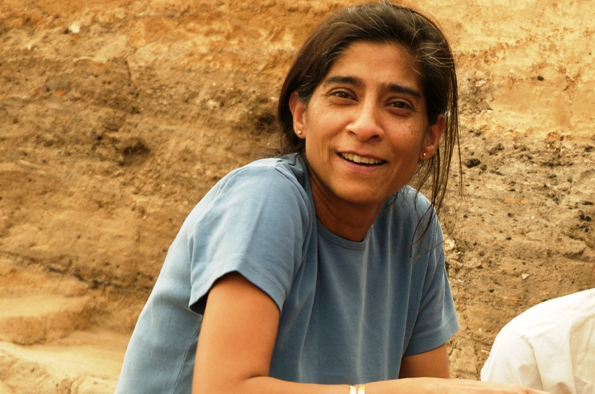
120 Years Keynote: Shahina Farid Shifting narratives in archaeology – a personal perspective
- Rachel Pope
- Admission: Free
- Event website
- Book now
Add this event to my calendar
Click on "Create a calendar file" and your browser will download a .ics file for this event.
Microsoft Outlook: Download the file, double-click it to open it in Outlook, then click on "Save & Close" to save it to your calendar. If that doesn't work go into Outlook, click on the File tab, then on Open & Export, then Open Calendar. Select your .ics file then click on "Save & Close".
Google Calendar: download the file, then go into your calendar. On the left where it says "Other calendars" click on the arrow icon and then click on Import calendar. Click on Browse and select the .ics file, then click on Import.
Apple Calendar: The file may open automatically with an option to save it to your calendar. If not, download the file, then you can either drag it to Calendar or import the file by going to File >Import > Import and choosing the .ics file.
Shahina Farid is Honorary Secretary for the Society of Antiquaries of London, Trustee for Museum of London Archaeology, and has served two terms as Honorary Secretary for the British Institute at Ankara. She is Honorary Research Associate at the Institute of Archaeology, University College London, and works for Historic England, running their dendrochronology programme. She is very proud to have been nominated a Trowelblazer: part of a web-based community that champions women in the archaeological, geological, and palaeontological sciences. Shanina is however best known as a field archaeologist with extensive experience of London-based commercial units, and for her development and promotion of modern British excavation methodologies.
After gaining her undergraduate degree from the University of Liverpool in the Archaeology of the Eastern Mediterranean, Shahina began her career in the Department of Urban Archaeology (DUA), Museum of London from 1987-1990 followed by other London-based commercial units. She has an international reputation as a field director on research projects abroad, having worked in Turkey, Bahrain, and the United Arab Emirates. She is known most widely for her work as Field Director and Project Coordinator for the world-renowned Neolithic excavations at the Çatalhöyük Research Project in Turkey: a site of complex stratigraphy of up to 20 m in depth spanning some 1,400 years of continuous occupation about 9000 years ago. This site is of fundamental importance in understanding the transition from villages to complex urban environments.
Shahina has led international, inter-disciplinary teams, witnessing changing methodologies, from implementing excavation practices developed on deeply stratified British urban sites; embedding an array of scientific techniques and analytical tools into daily excavation practice to accommodate research agendas within theoretical frameworks. Her experience also includes diversifying traditional audiences of archaeology through public archaeology and community engagement programmes. With a background heavily grounded in field excavation, Shahina’s perspective is firmly based in the rigour and accuracy of archaeological field methods and resulting data analysis.
The year 2024 marks 120 years since the Liverpool Institute of Archaeology was founded. In 1904, the Liverpool Institute became the first UK centre for the academic study of archaeological method and practice, Classical Archaeology, and Egyptology. As such, Liverpool played an important role in moving archaeology from a hobby of the gentry class towards a scientific discipline.
A pioneer of scientific method in archaeology, the Institute was renamed the Department of Prehistoric Sciences and Archaeology in 1975. The following year, the department attracted Dr Joan Taylor, to the Rankin Lectureship in European Prehistory – an archaeological scientist known for her groundbreaking work on the analysis of Bronze Age gold.
The department is now home to the Elizabeth Slater Laboratories, named after the University’s first female Professor of Archaeology in 1991. These state-of-the-art laboratories are focused on ancient diet (archaeobotany and isotopes) and materials science (the analysis of ancient materials) making them one of the best facilities in the UK for archaeological science.
Our Department of Archaeology Classics and Egyptology (ACE) continues to make groundbreaking archaeological discoveries. Last year, Liverpool archaeologists, alongside academics from Aberystwyth University, discovered the world’s oldest wooden structure in Kalambo Falls, Zambia, revealing that people in Africa were building the first structures, 470,000 years ago.
